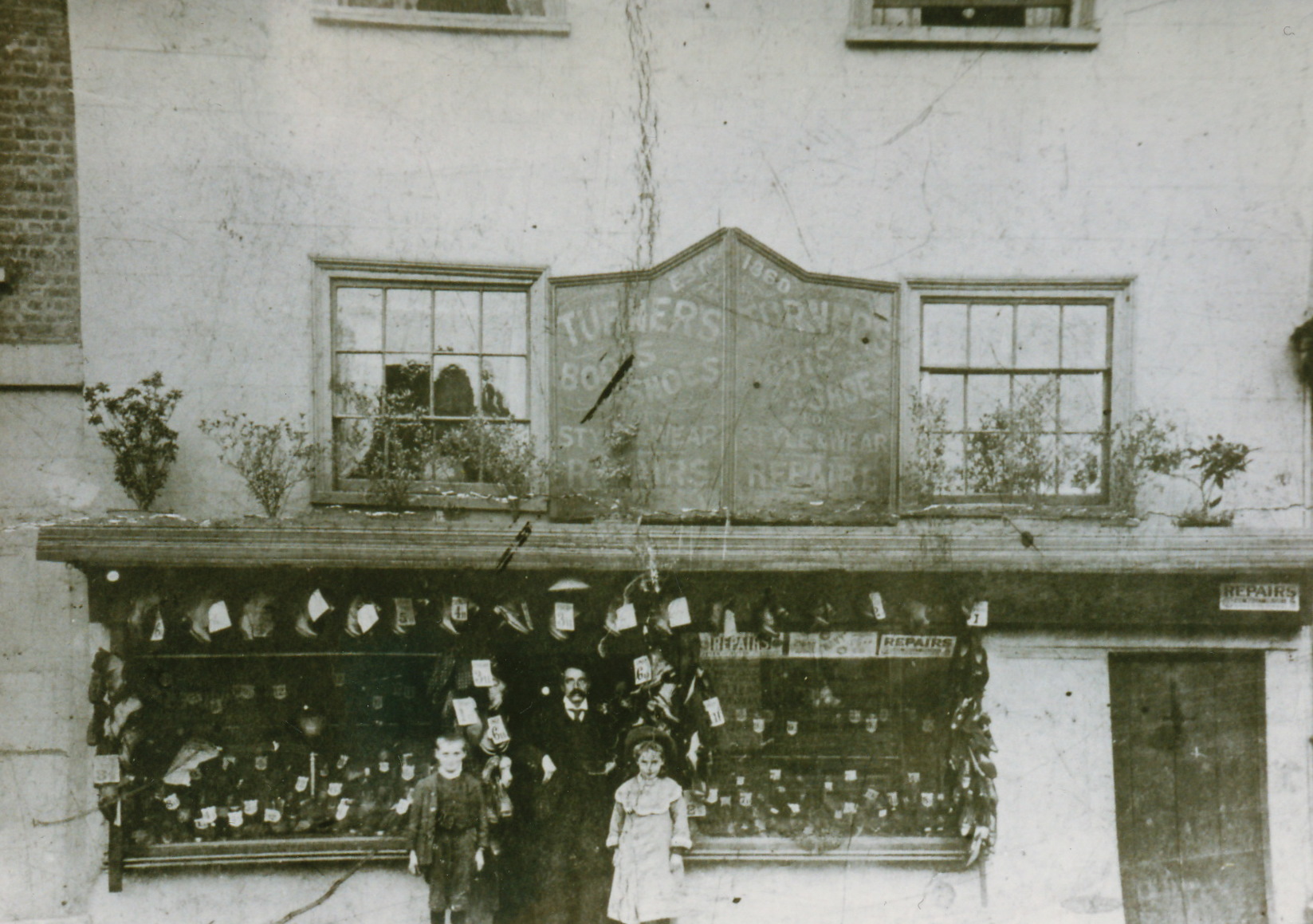My Family and Hampton Wick
Because of his family’s long association with the area we asked David Turner, Customer Service Manager at Hampton Wick Library to tell us about the factors that caused his family to move there.
When I became Customer Service Manager of Hampton Wick Library in April 2012, my father was exceedingly happy. This little village, just over the bridge from Kingston and up the road from Teddington, has a special place in the family’s history. My dad is a child of Hampton Wick; so was my grandfather (Ronald), my great grandfather (Frederick), my great great grandfather (Ernest) and my great great great grandfather (Richard). It was only this Richard’s father – also a Richard – who was not a native, moving to the community in 1860.
Born in Esher, Surrey, around 1831, Richard Turner, along with a considerable number of his fellow Esher residents, was employed in that most ubiquitous of early nineteenth century jobs, agricultural labouring. Like many nineteenth century boys, Richard followed his father into this line of work. Also, like many country-dwelling individuals at the time, he and his family gave up the fresh air of the countryside for urban surroundings. The urbanisation of the British population had been ongoing for decades by the mid-century. Between 1750 and 1831 the population of London had grown from around 675,000 to 1.72 million; by 1871 the total was 3.27 million. In moving to Hampton Wick, Richard’s family played a tiny part in the expansion of the urban population.
What compelled the family to move to Hampton Wick is unclear – we will never know exactly. It was unlikely to have been the improved transport of the age, alone. Esher station (initially named Ditton Marsh) had been opened by the London & Southampton Railway in 1838 and so for a full twenty-two years before they moved, the sound of steam engines hissing and puffing by would have been a fact of life. If access to a railway line alone had been enough of a stimulus for relocating the family, then surely they would have made the decision much earlier. But the connectedness of Hampton Wick could not have been a factor as it did not receive a direct railway connection until 1863, by which time Richard and his family were already residents.
Economic factors would have played a role in the family’s migration, perhaps pushing Richard off the land. The character of agricultural work may have changed in ways that left Richard and the family little choice but to move. Certainly the mechanisation of farms reduced the demand for agricultural labour and threatened job stability. It also meant that large numbers of workers were only required at certain times of the year (for instance, during harvest) which lead farmers to use more migrant labour. Agricultural specialisation – which in Surrey’s case was towards hops and fruit – also led to a demand for labourers with more specialised farming skills; skills which perhaps Richard did not have. The railways may also have had an indirect effect on agricultural employees prospects. Demand for locally produced goods and therefore local agricultural labour fell in some places because shopkeepers could now substitute the cheaper higher quality goods which were imported by train. In many places throughout Britain the railway station and not the market became the local economic hub.

Other factors were also likely to have pulled the Turner family to Hampton Wick. In a period when farm work was being progressively destabilised, job security was an important consideration. On arrival in Hampton Wick, Richard immediately set himself up as a bootmaker on the High Street, (it is now the pizza place next to the White Hart pub). It is unclear where he learnt his trade, but the village had been a hub of shoe-making since the mid-eighteenth century and, if he had the skill before relocating, perhaps he was assured of stable work. There was also a growing market for shoe producers’ wares in the village because of the growing populations of Teddington and Kingston. Indeed, after the railway arrived in 1863 the latter quickly became a dormitory town for the employees of the London & South Western Railway. It is likely that with such demand Richard was provided with regular customers and a stable income. The fact that the shoe store did not close until the First World War rather attests to the fact. Urban workers received higher pay compared to agricultural labourers and that may have been another factor pulling Richard off the land. One estimate puts the average pay of agricultural workers in 1881 at around £39.60 per annum, while those in the shoe industry could earn on average an estimated £52.40.
It is plausible that Richard and his family were both pushed and pulled to Hampton Wick. They were trying to build a better life for themselves. By moving they established a bond with the village that has been passed down through the generations. My career will take me away from Hampton Wick in due course but I will remember the time I have spent here as its library’s Customer Services Manager as a very special period in my life. In serving the public of Hampton Wick, I am doing the same as my forebears.
For more information on the history of Hampton Wick or on tracing your family tree, visit the Local studies Library & Archive.
[ David Turner, Customer Service Manager ]
